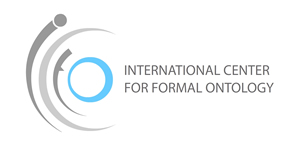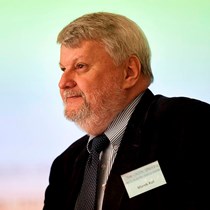Steering Committee
Janusz Kaczmarek, Thomas Mormann, Bartłomiej Skowron
Members
- Javier Belastegui
- Rafał Gruszczyński
- Janusz Kaczmarek
- Marek Kuś
- Wiesław Kubiś
- Nasim Mahoozi
- Thomas Mormann
- Imanol Mozo
- Bartłomiej Skowron
- Grzegorz Sitek
- Krzysztof Wójtowicz
- Frank Zenker
Rafał Gruszczyński is an associate professor at the Department of Logic at the Nicolaus Copernicus University in Toruń (Poland). In his scientific work, he focuses mainly on region-based theories of spaces, with a special emphasis on point-free geometry and point-free topology. He is an editor-in-chief of a quarterly Logic and Logical Philosophy and the supervisor of NCU Logical Society, an organization whose aim is to promote advanced topics in logic among students and young researchers.
Janusz Kaczmarek – is a professor at the University of Łódź and an employee of the Department of Logic and Methodology of Sciences at the University of Łódź. In 1995 he defended his doctoral thesis on the Pragmatic and logical concept of a proposition. In 2009 he defended his second dissertation (the so-called habilitation) based on the monograph Indywidua. Ideas. Concepts. Research in the field of formalised ontology. Currently he deals with the problems of formal logic, philosophy of language and semiotics, but focuses mainly on the study of ontological problems and selected issues of philosophical anthropology. Ontological problems are most often explored by him in a formal way, i.e. with the use of logic, algebraic structures and recently also general topology tools. His main goal is now to create a new method of studying ontological problems (metaphysical), which is called topological ontology. The results of this work can be found, among others, in the papers: (2019), Ontology in Tractatus Logico-Philosophicus. A Topological Approach, (2019), On the Topological Modelling of Ontological Objects: Substance in the Monadology and in earlier papers in Przegląd Filozoficzny, Bulletin of the Section of Logic and others. For data on selected publications, see, for example, the website:
https://ktfp.academia.edu/JanuszKaczmarek.
Wiesław Kubiś, a researcher in the Institute of Mathematics, Czech Academy of Sciences, is a mathematician working mainly in applications of logic. In the last years, his research focuses on developing the theory of generic objects within the framework of category theory. The results have already found numerous, sometimes unexpected, applications in several areas of mathematics, including geometric topology, Banach space theory, and C*-algebra. One of his plans is exploring philosophical aspects of the theory of generic objects. Among his most important works so far is the preprint Metric-enriched categories and approximate Fraïssé limits, [http://arxiv.org/abs/1210.6506], containing the general theory of generic objects in metric-enriched categories. This work is still under development, yet it already received several significant citations.
Marek Kuś is a professor at the Warsaw University of Technology, Faculty of Administration and Social Sciences and professor at the Centre of Theoretical Physics of the Polish Academy of Sciences in Warsaw. He is a theoretical physicis. He is the director of the International Center for Formal Ontology. He is a member of Academia Europea. His scientific interests include: mathematical physics, in particular the application of geometric and group-theoretic methods (simplectic geometry, algebraic geometry, Lie group theory) in quantum computer science, quantum chaos and the basics of quantum mechanics. He is also interested in formal methods in philosophy and the application of methods of exact sciences in humanities. He is the author of over 150 original articles.
Nasim Mahoozi is currently a PhD student in cognitive science and language at the university of Barcelona. Since 2016 she works on her thesis at university of Basque country, UPV/EHU. Her doctoral research investigates the application of topology on vagueness. She holds a master’s degree in philosophy of science from the Sharif University, Tehran, Iran. Also, she has completed a master in cognitive science and language as a LOGOS member from the University of Barcelona. She obtained her BA in mathematics from the Tehran University, Iran. Among other fields, she is mainly interested in topology, category theory, their philosophical applications and subsequently, turning philosopher’s attention to the importance of topological approaches. Also, she is interested in vagueness, philosophy of mind, conceptual spaces, cognitive science, mereology and artificial intelligence. You can find the joint manuscript paper of her and Thomas Mormann, titled: “Some higher-order Vagueness in Williamson’s ‘logic of clarity”.
Thomas Mormann is Professor of Philosophy at the University of the Basque Country in Donostia-San Sebastian, Spain. He obtained his PhD in Mathematics from the University of Dortmund (1978). He obtained his Habilitation from the University of Munich. He works in the philosophy of science, formal ontology, structuralism, Carnap studies, and neo-Kantianism. He is one of the world leaders in topological philosophy. He is the author of many recognized articles in this field. Some of his works can be found here: academia.edu/ThomasMormann. His last article on the subject was published in Erkentnist: Topological Models of Columnar Vagueness. Thomas Mormann is the author of a tutorial on topological philosophy.
Imanol Mozo Carollo is an Assistant Professor at the Department of Applied Economics I at the University of the Basque Country UPV/EHU. He obtained his Phd in Mathematics in 2015 from the UPV/EHU and has worked as a postdoctoral fellow at the Center of Excellence in Computation, Algebra and Topology (CECAT) at Chapman University. In his research, he has focused on pointfree topology, an abstract region-based approach to topology that replaces spaces by an abstraction of their lattices of open sets and takes as object of study the category of locales and its dual, the category of frames.
Bartłomiej Skowron is a platonic philosopher. He wrote his Ph.D. thesis on Mereotopological aspects of philosophical part-whole theory at the University of Wrocław, and defended his thesis in 2012. He received also BA in Mathematics from the University of Wrocław, Faculty of Mathematics and Computer Science, in 2011. He is interested in mathematical philosophy (in particular in formal ontology and topological philosophy, theory of ideas, category theory), phenomenology and ethics. He was elected a fellow of the Academy of Young Scholars and Artists in 2012. He received the Burgen Scholarship in 2013 from the Academia Europaea. Since 2015 he is an assistant professor at the Faculty of Administration and Social Sciences at the Warsaw University of Technology. Since 2017 he serves as Vice-Dean for Research. In 2019 he edited three books: Polish Contemporary Ontology (De Gruyter), Category Theory in Physics, Mathematics, and Philosophy (with Marek Kuś) (Springer Proceedings in Physics) and Virtual Objects (with Paweł Stacewicz) (Warsaw University of Technology publishing house). Most of his articles are available here. He is a member of the ICFO Program Council and a member of the steering committee of the topological philosophy research group at ICFO.
Krzysztof Wójtowicz is a Professor of Philosophy at the Institute of Philosophy at the Warsaw University. His main scientific interests focus on philosophy of mathematics – in particular on: (1) the realism-antirealism debate; (2) the problem of mathematical (in particular: topological) explanations in science; (3) non-standard models of computation (like quantum computing) and hypercomputation – and their possible impact on philosophy of mathematics. Apart from philosophy of mathematics, he is also interested in the probabilistic description of conditionals in natural language. Some of the latest papers: (1) „Theory of quantum computation and philosophy of mathematics (II)”. Logic and Logical Philosophy, 29 (1), 2019, 173-193. (2) „Are there category-theoretical explanations of physical phenomena?”, in: M. Kuś and B. Skowron (eds.), Category Theory in Physics, Mathematics, and Philosophy, Springer Proceedings in Physics 235, 33-43. (3) „Why categories?”, with: Kuś M., Skowron B, in: M. Kuś and B. Skowron (eds.), Category Theory in Physics, Mathematics, and Philosophy. (4) A stochastic graphs semantics for conditionals (with Anna Wójtowicz) Erkenntnis (2019). (5) “”Does mathematical possibility imply existence?, Contemporary Polish Ontology, B.Skowron (ed.), de Gruyter 2019, 161-180. One can find some of his papers at https://www.researchgate.net/profile/Krzysztof_Wojtowicz2. Krzysztof Wójtowicz is a member of the ICFO Program Council.
Frank Zenker is a research assistant professor at the Faculty of Administration and Social Sciences at the Warsaw University of Technology. He works in Social Epistemology, Cognitive Science, and the Philosophy of Science. Most of his ongoing research deals with overcoming the replication crisis in the empirical social and behavioral sciences, on which he leads a corresponding research project. He has attracted funding for several research projects, has published widely in international peer-reviewed journals, and maintains a wide ranging network of international contacts, including scholars in North America, Europe, and China, where he visits on a regular basis. Among others, he currently leads the workgroup on norms of public argument of the EU COST Action APPLY, European Network for Argumentation and Public Policy Analysis (CA17132), co-organizes the international section of the Symposium on Reasoning, Argumentation, and Communication at SWUFE, Chengdu, PRC. He is also a steering committee member of the European Conference on Argumentation (ECA). Click her for his pre-prints and a CV.












